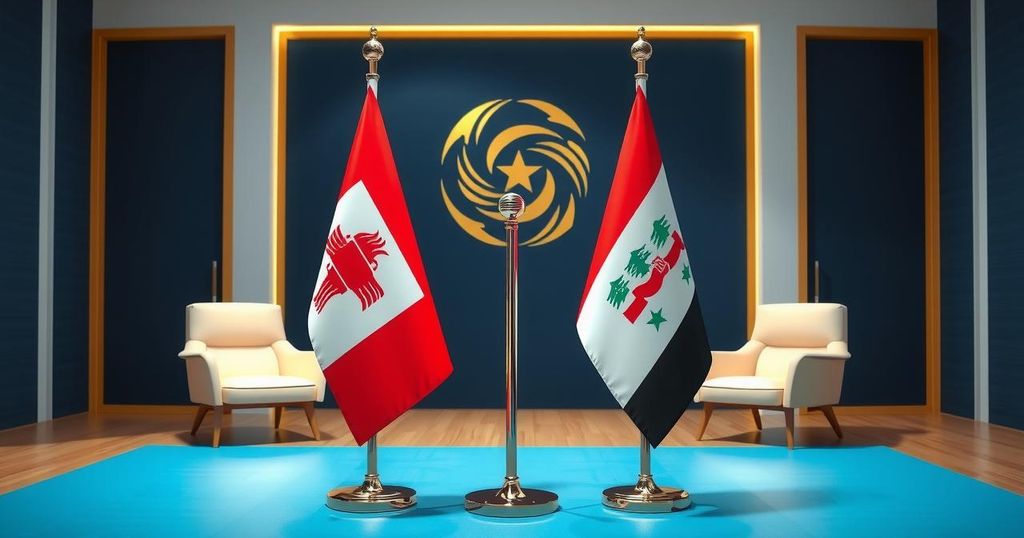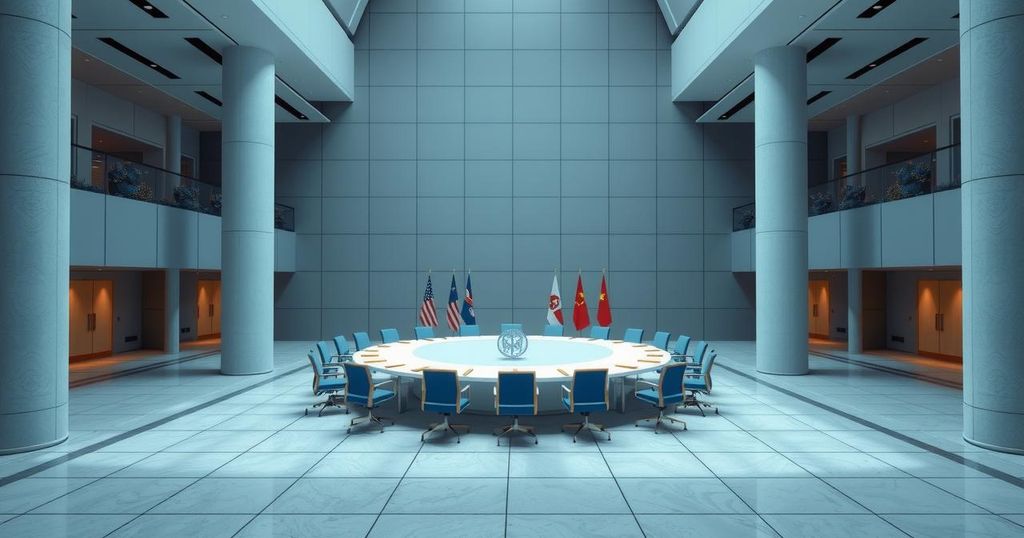The recent Arab League summit in Cairo underscored a transformative moment for Syria and Lebanon, with new leaders committed to enhancing relations with Arab states and opposing proposals for Palestinian displacement. The leaders’ participation emphasizes a shift in regional dynamics, moving away from Iranian influence and reinforcing diplomatic efforts in support of Palestinian rights. The summit signals an urgent call for Arab unity amidst fluctuating geopolitical conditions in the region.
The recent Arab League summit in Cairo concluded with a decisive agreement supporting Egypt’s $53 billion plan for the reconstruction of Gaza, while firmly opposing any proposals involving the displacement of Palestinians. The summit featured the participation of Syrian interim President Ahmad Al Shara and Lebanese President Joseph Aoun, marking their emergence in regional politics amid a significant transformation in the Middle East.
Both leaders, representing a departure from their predecessors’ alignment with Tehran, expressed a desire to strengthen diplomatic relations with fellow Arab nations. This shift is notable, as both Syria and Lebanon have chosen Saudi Arabia for their initial foreign engagements post-leadership change.
Syria’s re-entry into the Arab League follows a prolonged suspension due to the civil unrest initiated by President Bashar Al Assad’s violent crackdown on protests in 2011. His regime was re-admitted to the bloc in 2023; however, he was ousted in December 2023, leading to significant changes in Syria’s political landscape.
In a statement to Al Arabiya TV, Mr. Al Shara affirmed, “Syria is now in its rightful place – among its brotherly nations and within the Arab fold”. The ousting of Al Assad disrupted Iran’s influence in the region, which had previously utilized Syria as a conduit for Hezbollah logistics and operations, substantially weakening its regional strategy.
The recent military defeat of Hezbollah has facilitated Lebanon’s election of a new president and the appointment of a prime minister committed to enhancing relations with the United States and neighboring Arab states, distancing from Iranian influence. Initiatives taken by Mr. Al Shara aim to diminish smuggling along the Syria-Lebanon border, reinforcing his commitment to non-interference in Lebanese affairs.
Analysts note that the Arab summit reflects a significant regional shift, with Arab nations responding to changing dynamics in the Middle East. Mr. Neil Quilliam of Chatham House highlighted the growing necessity for Arab states to fortify regional security and development efforts amidst diminished Iranian clout.
At the summit, Mr. Aoun remarked that Lebanon has learned to navigate its struggles without being entangled in foreign conflicts. He emphasized the interconnectedness of regional stability and solidarity with Palestine, asserting, “We must all be strong for Palestine to be strong.” Meanwhile, escalating hostilities between Israel and Hezbollah have complicated Lebanon’s security landscape, with Israeli forces maintaining military positions in the region.
Both leaders urged international pressure on Israel to withdraw from contested territories, recognizing that the current circumstances necessitate a diplomatic approach rather than military confrontation. Syria’s leadership has committed to a policy of non-aggression while seeking robust support from Arab nations, positioning themselves within a new framework of regional stability.
Experts suggest that shifting priorities in U.S. foreign policy alongside Israel’s aggressive tactics have compelled Arab states to unite in pursuing their mutual interests. The strategic repositioning experienced in Syria and Lebanon offers an unprecedented opportunity for Arab leadership to redefine the regional security landscape.
The Arab League summit signifies a pivotal moment for Syria and Lebanon, with new leadership prioritizing diplomatic engagement over Iranian influence. The reaffirmed commitment to Palestinian support and the rejection of foreign displacement scenarios underscore a collective regional stance. Moreover, as Syria navigates its post-conflict landscape, there is a pressing need for Arab nations to collaborate on regional security and stability, shaping a new geopolitical order in the Middle East.
Original Source: www.thenationalnews.com




